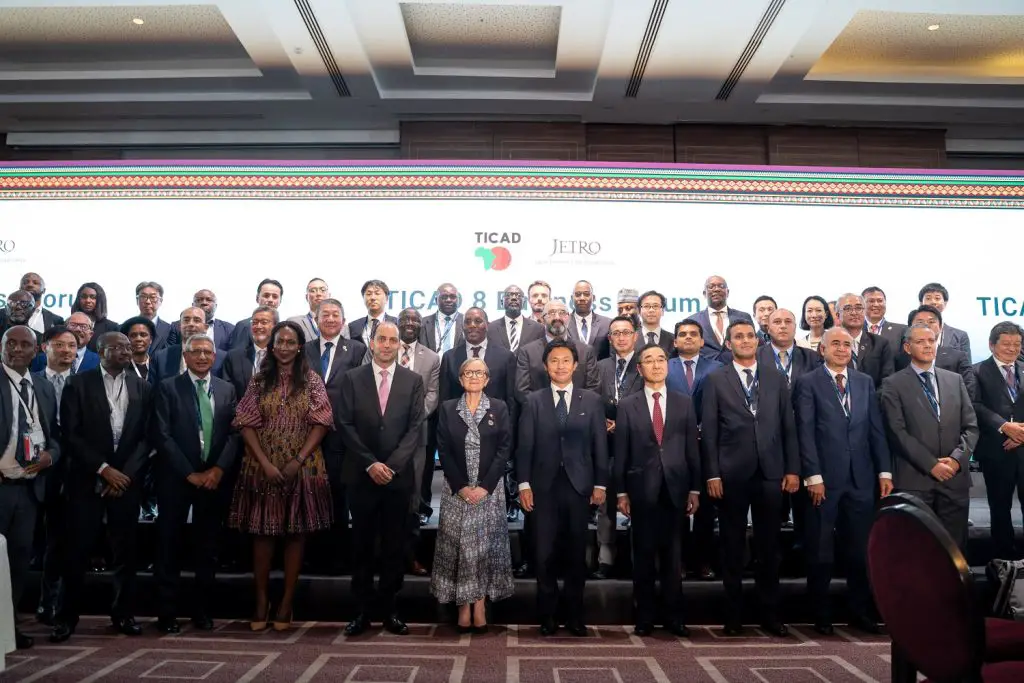As TICAD8 concluded in Tunisia last weekend, sentiments by Japanese Prime Minister Fumio Kishida that Africa and Japan are partners “growing together” linger.
The promise of a US$1 billion loan quota to support African debt restructuring must also have been like music to many leaders in attendance. Despite more than half of all African leaders not attending, Kishida said via video conference that Japan will help train 300,000 people in Africa over the next three years, citing criticism that China’s aid is ineffective in developing human resources.
With TICAD8, Tokyo hopes to encourage its private sector to invest in Africa and lend to the continent as China’s economic engagement wanes and Covid-19 and the Ukraine war hit the global economy.
Rising African sovereign debt levels make securing other sources of lending difficult, so demand for Tokyo’s preferential lending may be high.
Since the end of the Cold War, more global powers have sought to influence Africa’s politics, diplomacy, and economy. China has been the biggest source of bilateral project finance since the turn of the millennium. It is boosted by cheap loans for Chinese contractors’ projects to keep them busy during times of lower domestic demand.
Japan has pledged to prioritize quality over quantity in its aid to Africa. Prime Minister Kishida has pledged to maintain and expand Abe’s interest in Africa.
Tokyo has always financed a variety of projects in different sectors. A decade ago, Japan financed a new container terminal in Mozambique’s port of Nacala and Kenya’s main port, Mombasa. Now, renewables are favoured to promote development and maximize Japanese expertise.
Tokyo financed the April completion of Unit 6 at Kenya’s Olkaria geothermal site. It provided a US$746 million low-interest loan to finance the new project and the transmission lines needed to connect the plant to the rest of the country. Fuji Electric Global and Marubeni Corporation did the work. Japanese firms supply more geothermal turbines than the rest of the world combined, and JICA finances geothermal projects worldwide.
The US$217 million loan for project generation has a concessionary 0.2 per cent interest rate and a 10-year grace period. In 2018, the Japanese government spent US$94 million to refurbish Olkaria’s ageing units 1-3. Agriculture and road projects also receive substantial Japanese funding from JICA and the Japan Bank for International Cooperation. JICA’s total support for Africa hit US$1.69 billion in 2020.
UNDP Assistant Administrator and Director, Regional Bureau for Africa, Ahunna Eziakonwa, notes that UNDP is part of the planning and monitoring of Japan’s US$30bn commitment to Africa’s development.
Speaking when she met Gambia President Adama Barrow, Eziakonwa urged the Gambia to work towards encouraging more foreign investment.
At the end of the summit, the TICAD8 Tunis Declaration was issued.
Among the highlights was the note that private sector investment is crucial for Africa’s equitable and sustainable economic growth and development and remains a key partner in this transformative process.
After TICAD 7, private enterprises became formal TICAD partners with the Public Private Business Dialogue between Japan and Africa, demonstrating the great regard for private sector development in Africa and Japan.
The declaration reaffirmed the importance of the Japan-Africa partnership to encourage investment, promote innovation from the private sector by encouraging collaboration between Japanese and African companies and technology transfer, and strengthen industrial human resources development to accelerate structural transformation for inclusive and sustainable growth in Africa and its efforts to achieve Agenda 2063 and the SDGs, while overcoming challenges.
The declaration also called for international cooperation to strengthen the existing mechanism for recovering stolen assets and to prevent such illegal practices, which undermine African sustainable development efforts, tackling Africa’s climate vulnerabilities based on common but differentiated duties and respective capabilities and the need to accelerate private investment in an equitable and fair transition to other energy sources.
“We ask for UNFCCC financial pledges to support climate adaptation and mitigation in African countries. We applaud African countries’ efforts to enhance their green economies and reduce greenhouse gas emissions through private investments, technological transfers, innovation, ODA, and other official flows. We call for the promotion of Japan’s Green Growth Initiative with Africa (GGA), which aims to achieve structural change toward low greenhouse gas emissions and green growth, reflecting the different circumstances of each African country through a public-private partnership to mobilize financial resources in climate adaptation and mitigation, including the use of Joint Crediting Mechanism (JCM) and the collaboration with Multilateral Development Banks (MDBs),” notes the declaration.
